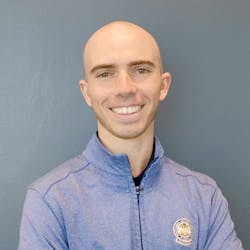Win vs Develop: Setting your Golf Agenda
I recently came across an interesting paper titled How Do Coaches Operationalise Long-Term Technical Training in Elite Golf?
The researchers explored how an elite coach sets goals and structures practice to help a high-level golfer improve their technique.
The coaches interviewed for this research project were the crème de la crème:
Surprisingly, though, these highly experienced (and highly paid!) coaches did not answer as I expected (spoiler alert: you are about to be positively disillusioned). One would expect to hear about carefully thought-out routines for golfers during tournament seasons, ideally leaning towards consistency and habit, but, shockingly, this is not the case:
What struck me was that a systematic approach to technique changes seems to be lacking even among elite coaches and players.
The bottom line is that the process of fine-tuning over a long period will separate the average golfer from the professional golfer, and little to none of this work will make tournament seasons their undoing.
Practice Makes “Professional”
When you are in the comfort of your own environment, it is much easier to develop a plan and stick to it. There is no traveling involved; you sleep uninterrupted in your own comfortable bed and have the benefit of being able to prepare healthy meals and regularly hit the gym.
A golfer’s eating habits, sleeping schedule, workout regime, and mental health all have significant effects.
Every habit a professional golfer develops while training and living in their own hub is designed to keep them on top of their game and tournament, but when those habits are disrupted, golfers are slowly thrown off course, which can negatively impact their success and ability to play the often underrecognized mental game.
It’s difficult to make changes that might result in performance improvements when players are constantly competing and forced to regress in terms of good habits.
The disconnect between what some elite coaches advocate for (fewer tournaments) and their actions (or lack thereof) is surprising:
What’s On The Agenda?
Setting a “win” or “develop” agenda for a tournament is crucial for elite golfers. In other words:
One of the elite coaches touched on this idea, setting the agenda by prioritizing his goals based on the level of the event:
A good coach will know to choose the right agenda at the right time.
Playing The Long Game
Naturally, the human tendency (especially in competitive sports) is to want to reach the highest potential and succeed every time.
We’re not against winning—believe me, we’re all about it—but, in reality, taking our “win vs. develop” approach might mean you have more wins in the long term.
Firstly, let’s define the two agendas.
- Win Agenda: the goal is to win at all costs.
- Develop Agenda: practice new skills in a safe environment.
Establishing the appropriate agenda for different parts of the season requires long-term planning.
Unfortunately, the researchers’ findings suggest that long-term planning is largely missing, even among the most esteemed coaches.
What’s The Plan, Stan?
This information might be as shocking for you as it was for us, but all is not lost. Anyone can choose to get back on track and learn from the—dare we say it—mistakes of others.
Here are a few things elite golfers (and every golfer) should consider during tournament seasons and off seasons.
1. Establish a long-term development plan
- What technical changes do you and your coach want to make in the next three, six, and 12 months?
- Does your tournament schedule allow you to make the desired changes?
- Do you need to adjust your tournament schedule to allow for the technical changes in your long-term plan to take place?
2. Establish “Win” and “Development” Agendas
- Review your tournament schedule.
- Identify which tournaments are opportunities to develop your skills and which are those you want to win.
Every golfer needs a routine that fits their unique lifestyle and fitness level—no two golfers are the same.
Our specialists will help you get on track to developing realistic habits that will gradually improve your game. They will also guide you toward improving your mental performance, so you are professionally trained and prepared to meet the challenges you’ll face on the course.
Contact us today to schedule an assessment with our experts and level up on your golf game!

Are you ready to improve your game?
Book your assessment today by clicking the button below. We'll call you to schedule your visit.
